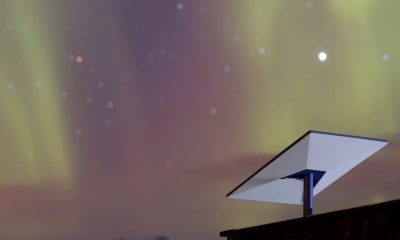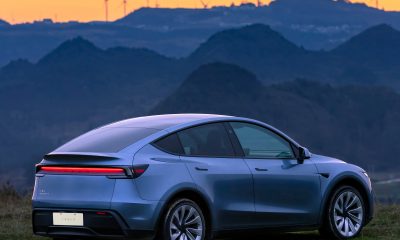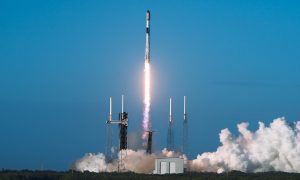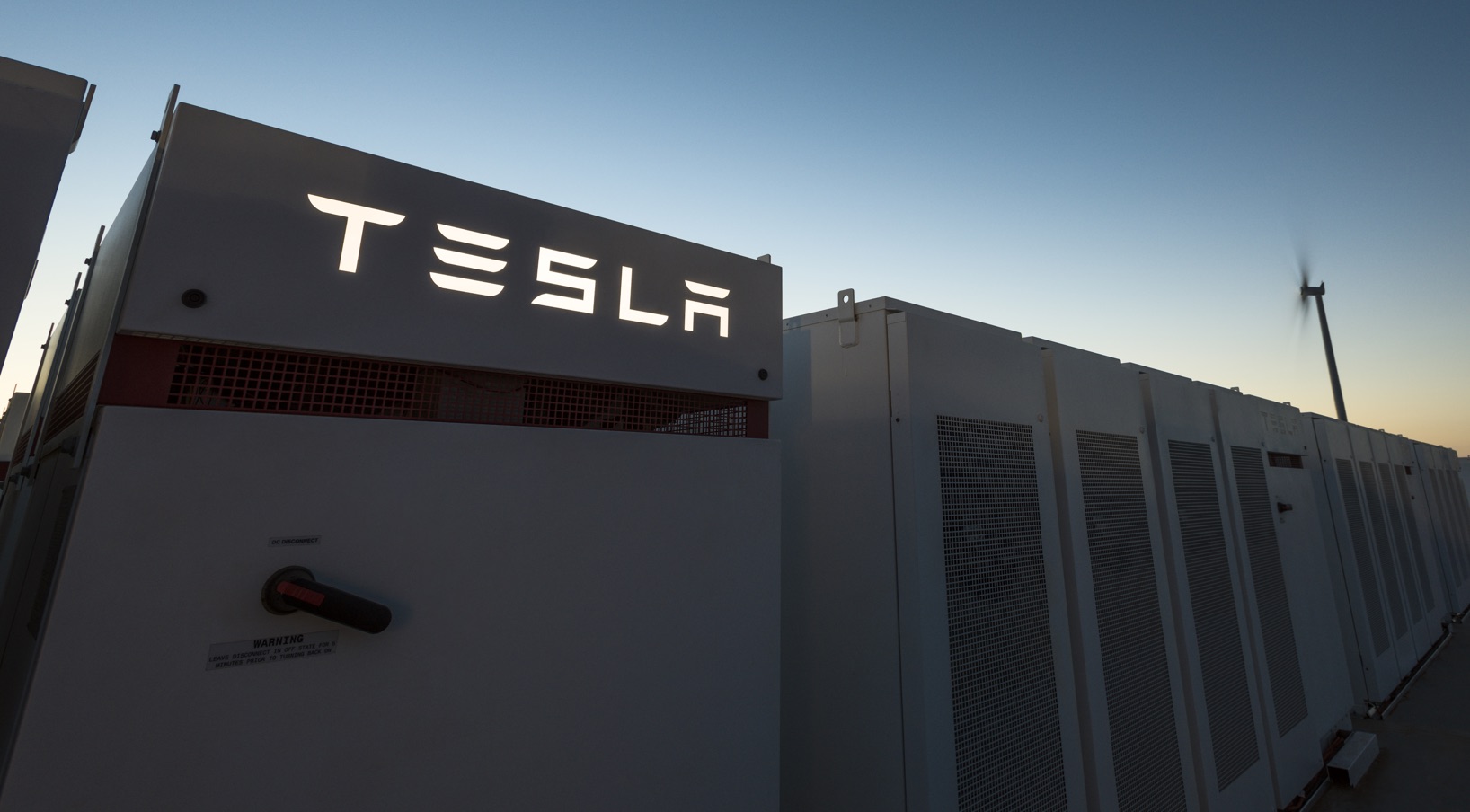

Energy
Tesla’s South Australia battery is ‘Kim Kardashian’ of energy, says minister
Tesla’s massive South Australia battery installation recently received some harsh words from LNP senator and Minister for Resources Matt Canavan, who likened the massive Powerpack system to reality TV star Kim Kardashian. According to Canavan, Tesla’s battery is not very useful at all, and that it is simply “famous for being famous.”
The Australian minister’s statements about the Tesla Powerpack installation in South Australia were spoken at the recently-held CERAWeek 2018 conference, an international gathering about the future of the energy industry, which was held in Houston, TX. During the event, Canavan optimistically talked about investments in Australia’s coal, gas, and other resource-driven industries.
As noted in a report from Renew Economy, however, the resource minister added a little extra to his talk, dismissing the success of Tesla’s big battery installation in South Australia. The Australia-based publication was able to get a transcript of Canavan’s comments about Tesla’s South Australia Powerpack installation in the CERAWeek 2018 conference. According to the resource minister, the big battery “really doesn’t deliver very much.”
“It’s the world’s biggest battery, I’m told. I think it can supply power for about five percent of the state that it’s in – South Australia, it’s a relatively small state – for about an hour.
“It’s not really a solution for the stability problems of South Australia… You’ll excuse me for a bit of rhetorical flourish – I’m a politician. I sometimes think this big battery is the Kim Kardashian of the energy world – it’s famous for being famous. It really doesn’t deliver very much.”
The resource minister’s comparison of Tesla’s big battery to the reality TV star reveals a dismissive attitude towards the Elon Musk-led firm’s initiatives in Australia, especially since Kim Kardashian is one of the entertainment industry’s most polarizing figures. Breaking into mainstream popularity by the viral spread of a leaked home video, Kardashian is usually bashed by her critics for becoming “famous for being famous.”
Canavan’s comments have drawn a significant amount of criticism from his followers on Twitter and in the online forum community, many of whom believe that Tesla’s Powerpack system is actually helping South Australia’s energy grid. The Tesla Powerpack system, after all, has already achieved several milestones since it was powered on in November 2017.
Since coming online, the SA Powerpack system, which gets its energy from the Hornsdale wind farm near Jamestown, has provided support for the region’s beleaguered grid. In December alone, the big battery installation provided backup energy to the region hundreds of times. It even supplied emergency power to one of Australia’s biggest coal-fired stations after the facility experienced an unexpected power loss on December 14.

Tesla’s 100 MW/129 MWh Powerpack system dubbed as the ‘World’s largest battery’ in Jamestown, Australia
Recent findings from Australia Institute’s latest national energy emissions audit also show that Tesla’s Powerpack battery in South Australia is working to serve the peak energy demand of the region on a daily basis. The Institute further noted that emissions from the National Electricity Market (NEM) continued to decline during January, hitting their lowest levels since 2004.
As stated in a report from The Guardian, Hugh Saddler, an expert in the energy industry, recently examined the charging and discharging patterns of the Powerpack installation. According to the energy expert, the South Australia Powerpack followed a consistent pattern of charging overnight when wind power is abundant, and discharging into the energy grid during the day when market prices and demand are at their highest levels. Only 30% of the big battery’s 100MW capacity is devoted to this charge and discharge cycle, however, as the remaining capacity of the Hornsdale Power Reserve installation is set aside for the task of keeping the energy grid’s frequency at a steady 50 Hz and 240 volts.
Comprised of approximately 640 Powerpack units, the 100 MW/129MWh system currently stands as the world’s largest lithium-ion battery installation. The success of the South Australia Powerpack has been so notable, Victoria has also expressed its desire to have a similar battery system installed. A residential virtual power plant, comprised of 50,000 homes fitted with solar panels and Tesla’s Powerwall home units, is also being planned.
Unlike Australia’s resource minister Matt Canavan, State premier Jay Weatherill has expressed his full support of the country’s clean energy initiatives, stating that he is looking forward to the time when the planned 250 MW/650 MWh virtual power plan would come online.
“My government has already delivered the world’s biggest battery, and now we will deliver the world’s largest virtual power plant. We will use people’s homes as a way to generate energy for the South Australian grid, with participating households benefiting with significant savings in their energy bills. Our energy plan means that we are leading the world in renewable energy and now we are making it easier for more homes to become self-sufficient,” the state premier said.
[This article is updated to show additional information on the daily performance of the South Australia Tesla Powerpack installation.]
Energy
Tesla Lathrop Megafactory celebrates massive Megapack battery milestone
The Tesla Megapack is the backbone of Tesla Energy’s battery deployments.
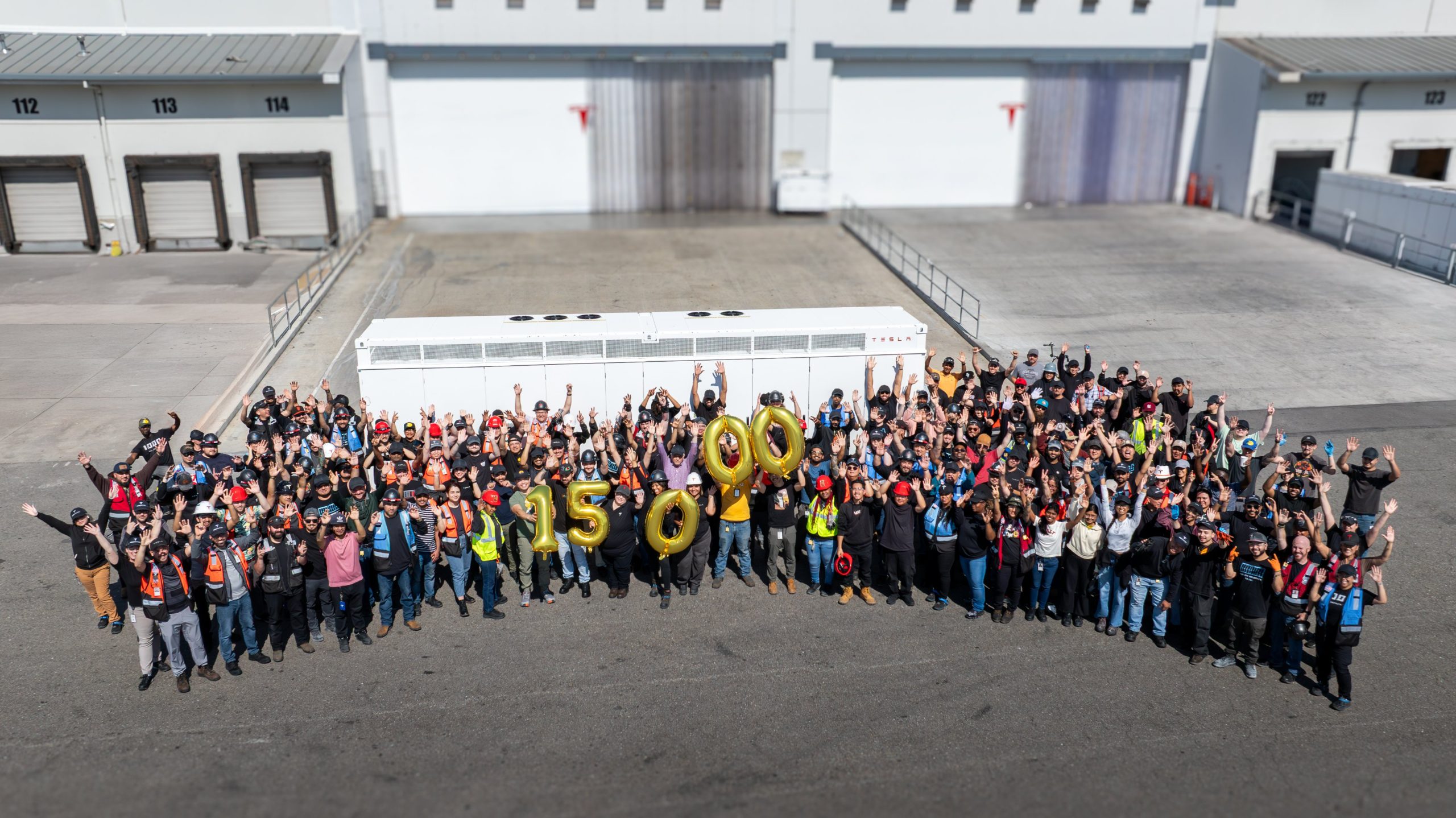
The Tesla Lathrop Megafactory recently achieved a new milestone. As per the official Tesla Megapack account on X, the Lathrop Megafactory has produced its 15,000th Megapack 2 XL battery.
15,000 Megapack Batteries
Tesla celebrated the milestone with a photo of the Lathrop Megafactory team posing with a freshly produced Megapack battery. To commemorate the event, the team held balloons that spelled out “15,000” as they posed for the photo.
The Tesla Megapack is the backbone of Tesla Energy’s battery deployments. Designed for grid-scale applications, each Megapack offers 3.9 MWh of energy and 1.9 MW of power. The battery is extremely scalable, making it perfect for massive energy storage projects.
More Megafactories
The Lathrop Megafactory is Tesla’s first dedicated facility for its flagship battery storage system. It currently stands as the largest utility-scale battery factory in North America. The facility is capable of producing 10,000 Megapack batteries every year, equal to 40 GWh of clean energy storage.
Thanks to the success of the Megapack, Tesla has expanded its energy business by building and launching the Shanghai Megafactory, which is also expected to produce 40 GWh of energy storage per year. The ramp of the Shanghai Megafactory is quite impressive, with Tesla noting in its Q1 2025 Update Letter that the Shanghai Megafactory managed to produce over 100 Megapack batteries in the first quarter alone.
Tesla Energy’s Potential
During the first quarter earnings call, CEO Elon Musk stated that the Megapack is extremely valuable to the energy industry.
“The Megapack enables utility companies to output far more total energy than would otherwise be the case… This is a massive unlock on total energy output of any given grid over the course of a year. And utility companies are beginning to realize this and are buying in our Megapacks at scale,” Musk said.
Energy
Tesla Megapacks powers the xAI Colossus supercomputer
Tesla Megapacks step in to stabilize xAI’s Colossus supercomputer, replacing natural gas turbines. Musk’s ventures keep intertwining.
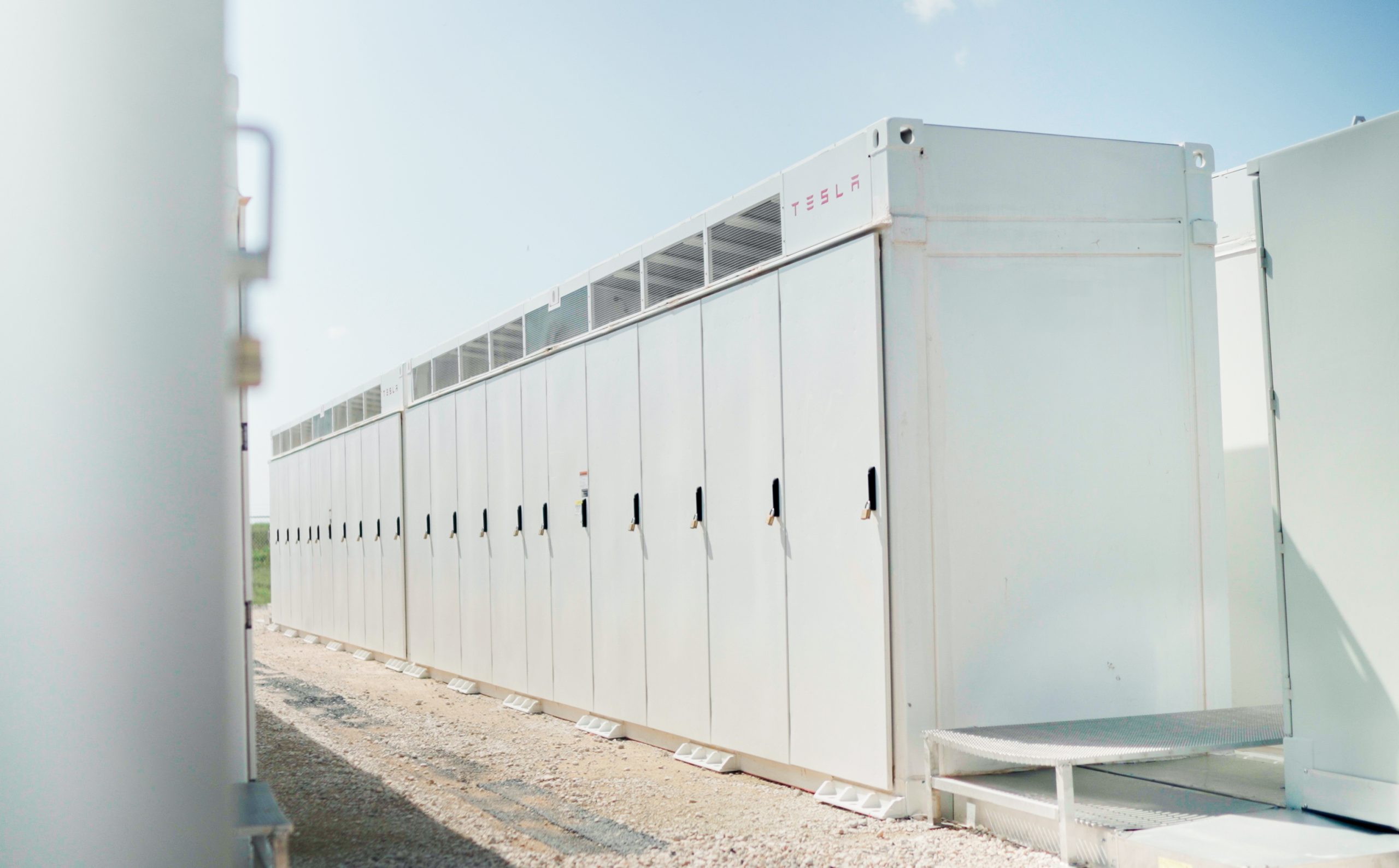
Tesla Megapack batteries will power the xAI Colossus supercomputer in Memphis to ensure power stability. The collaboration between Tesla and xAI highlights the synergy among Elon Musk’s ventures.
The artificial intelligence startup has integrated Tesla Megapacks to manage outages and demand surges, bolstering the facility’s reliability. The Greater Memphis Chamber announced that Colossus, recently connected to a new 150-megawatt electric substation, is completing its first construction phase. This transition addresses criticism from environmental justice groups over the initial use of natural gas turbines.
“The temporary natural gas turbines that were being used to power the Phase I GPUs prior to grid connection are now being demobilized and will be removed from the site over the next two months.
“About half of the operating turbines will remain operating to power Phase II GPUs of xAI until a second substation (#22) already in construction is completed and connected to the electric grid, which is planned for the Fall of 2025, at which time the remaining turbines will be relegated to a backup power role,” the Chamber stated.
xAI’s rapid development of Colossus reflects its ambition to advance AI capabilities, but the project has faced scrutiny for environmental impacts. The shift to Megapacks and grid power aims to mitigate these concerns while ensuring operational continuity.
The Megapack deployment underscores the collaboration among Musk’s companies, including Tesla, SpaceX, Neuralink, and The Boring Company. Tesla appears to be the common link between all of Musk’s companies. For example, The Boring Company built a tunnel in Giga, Texas. In addition, Musk has hinted at a potential collaboration between the Tesla Optimus Bot and Neuralink. And from January 2024 to February 2025, xAI invested $230 million in Megapacks, per a Tesla filing.
Tesla Energy reported a 156% year-over-year increase in Q1 2025, deploying 10.4 GWh of storage products, including Megapacks and Powerwalls. Tesla’s plans for a new Megapack factory in Waller County, Texas, which is expected to create 1,500 jobs in the area, further signal its commitment to scaling energy solutions.
As xAI leverages Tesla’s Megapacks to power Colossus, the integration showcases Musk’s interconnected business ecosystem. The supercomputer’s enhanced stability positions xAI to drive AI innovation, while Tesla’s energy solutions gain prominence, setting the stage for broader technological and economic impacts.
Energy
Tesla Energy celebrates one decade of sustainability
Tesla Energy has gone far since its early days, and it is now becoming a progressively bigger part of the company.
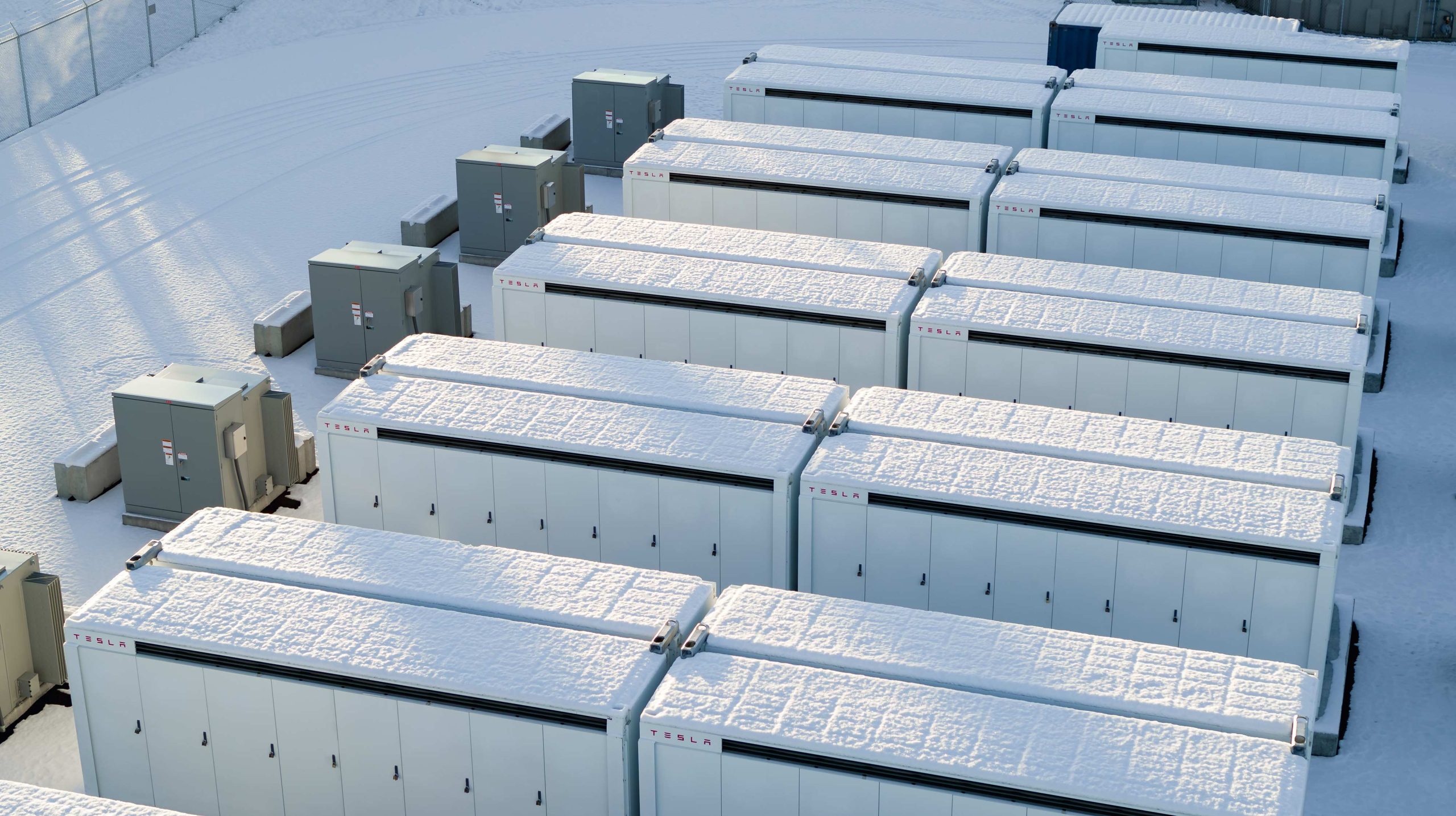
Tesla Energy recently celebrated its 10th anniversary with a dedicated video showcasing several of its milestones over the past decade.
Tesla Energy has gone far since its early days, and it is now becoming a progressively bigger part of the company.
Tesla Energy Early Days
When Elon Musk launched Tesla Energy in 2015, he noted that the business is a fundamental transformation of how the world works. To start, Tesla Energy offered the Powerwall, a 7 kWh/10 kWh home battery system, and the Powerpack, a grid-capable 100 kWh battery block that is designed for scalability. A few days after the products’ launch, Musk noted that Tesla had received 38,000 reservations for the Powerwall and 2,500 reservations for the Powerpack.
Tesla Energy’s beginnings would herald its quiet growth, with the company later announcing products like the Solar Roof tile, which is yet to be ramped, and the successor to the Powerwall, the 13.5 kWh Powerwall 2. In recent years, Tesla Energy also launched its Powerwall 3 home battery and the massive Megapack, a 3.9 MWh monster of a battery unit that has become the backbone for energy storage systems across the globe.
Key Milestones
As noted by Tesla Energy in its recent video, it has now established facilities that allow the company to manufacture 20,000 units of the Megapack every year, which should help grow the 23 GWh worth of Megapacks that have already been deployed globally.
The Powerwall remains a desirable home battery as well, with more than 850,000 units installed worldwide. These translate to 12 GWh of residential entry storage delivered to date. Just like the Megapack, Tesla is also ramping its production of the Powerwall, allowing the division to grow even more.
Tesla Energy’s Role
While Tesla Energy does not catch as much headlines as the company’s electric vehicle businesses, its contributions to the company’s bottom line have been growing. In the first quarter of 2025 alone, Tesla Energy deployed 10.4 GWh of energy storage products. Powerwall deployments also crossed 1 GWh in one quarter for the first time. As per Tesla in its Q1 2025 Update Letter, the gross margin for the Energy division has improved sequentially as well.
-

 Elon Musk2 days ago
Elon Musk2 days agoTesla investors will be shocked by Jim Cramer’s latest assessment
-

 News7 days ago
News7 days agoTesla Robotaxi’s biggest challenge seems to be this one thing
-

 News2 weeks ago
News2 weeks agoTesla’s Grok integration will be more realistic with this cool feature
-

 Elon Musk2 weeks ago
Elon Musk2 weeks agoElon Musk slams Bloomberg’s shocking xAI cash burn claims
-

 News2 weeks ago
News2 weeks agoTexas lawmakers urge Tesla to delay Austin robotaxi launch to September
-

 Elon Musk1 week ago
Elon Musk1 week agoFirst Look at Tesla’s Robotaxi App: features, design, and more
-

 Elon Musk2 weeks ago
Elon Musk2 weeks agoTesla Robotaxis are becoming a common sight on Austin’s public roads
-
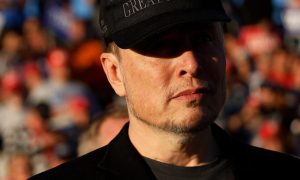
 Elon Musk2 weeks ago
Elon Musk2 weeks agoTesla CEO Elon Musk hits back at drug use claims, calls publications ‘hypocrites’






